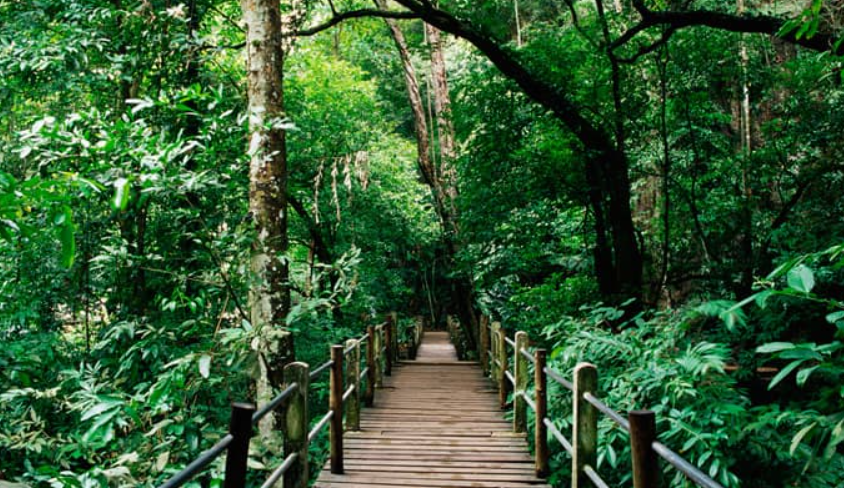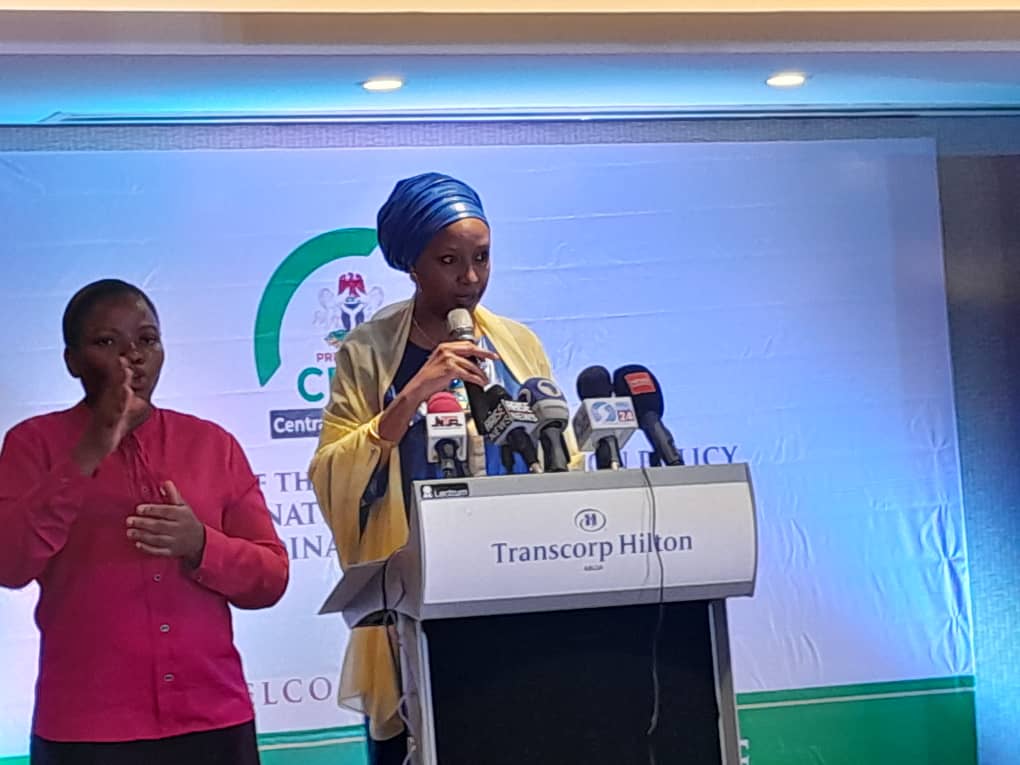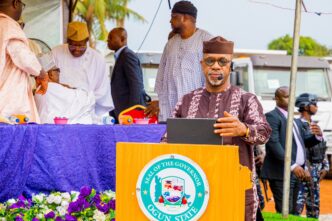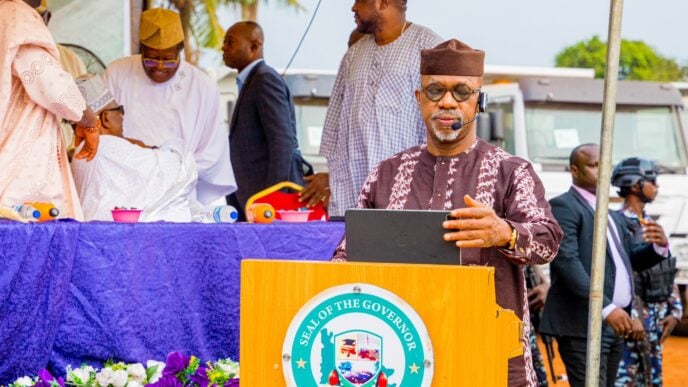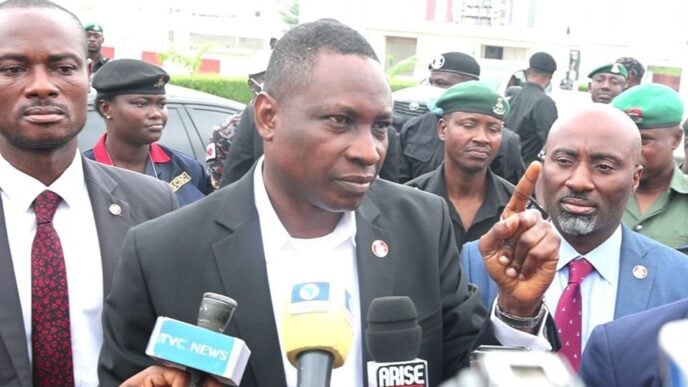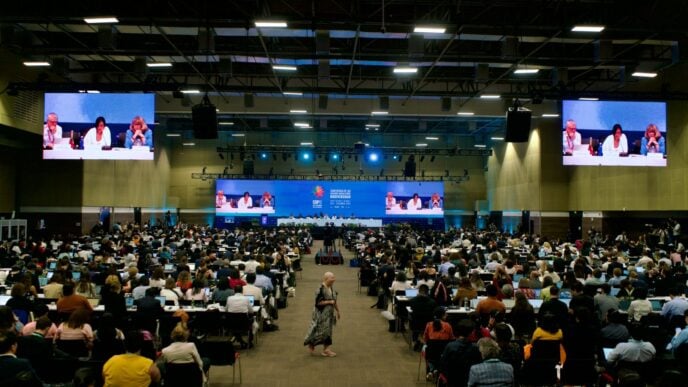BY IYADUNNI GBADEBO
You do not need a country to be economically and infrastructurally perfect for tourism to thrive. Security and safety are important but countries that are dependent on tourism are not without security or safety challenges.
There is power in our size and population. Potent enough to make Nigeria serve as the tourism hub for the African continent. Our rich, diverse cultures make us uniquely and distinctively different, and whether we like to accept it or not, as imperfect as our country is, we have all it takes home and abroad in human capital to turn our fortune around. The right drive in storytelling is key. The quality of educated and exposed Nigerians growing and feeding other countries’ economies is all the proof we need.
I have dedicated a lot of my time studying and researching extensively on this, and I see the little things that make tourism work all over the world, I have data and case studies to buttress my point and as certain as the sun will rise, I am confident that the possibilities when we become intentional about diversitying our economy, with focus on our human capital assets, Tourism, can be a game changer for our economic growth.
Forgive my fixation with the potentials of you and I, the responsibility we each have is to believe and act, put our selfish interests aside and act for the good of all and not some of us. I dream, it’s my right, but I prefer solutions too. I act!
Advertisement
Imagine this: a middle-aged couple from Leeds lands at Murtala Muhammed International Airport in Lagos. They are not here to explore beaches or cultural landmarks. They are here for a knee replacement procedure, one that would have taken a longer time to schedule in the UK, depending on whether they wanted to use the NHS or a private provider. The NHS typically strives to schedule knee replacement surgery within 18 weeks of a patient’s consultation. However, wait times can fluctuate depending on factors such as the seriousness of the condition, resource availability, and the urgency of the patient’s situation. For private healthcare, the wait for knee surgery varies by provider but is often around 4 to 6 weeks. In Nigeria, all for a fraction of the cost, they will get similar treatment, with no waitlists.
This is not a far-fetched scenario. As healthcare systems in the US, UK, and Canada struggle with long waiting lists, prohibitive costs, and overwhelmed facilities, Nigeria has an untapped opportunity to position itself as a hub for medical tourism. But seizing this opportunity requires more than hope. It calls for strategy, investment, and an ambitious reimagining of what Nigerian healthcare can offer. Especially because home is looking more promising in the long run. Every country is now interested in keeping only its own.
Medical tourism is big business. Countries like India, Thailand, and Turkey rake in billions annually by offering affordable, high-quality care to international patients. These nations have not just sold healthcare services but built entire ecosystems around them: concierge packages, wellness resorts, and post-treatment recovery plans that combine luxury with efficiency.
Advertisement
Nigeria already has some of the key ingredients to join this league. Private hospitals in Lagos, Reddington, Duchess, Evercare, etc., and Cedarcrest in Abuja are equipped with modern facilities and internationally trained doctors. Diagnostic centers in cities like Lagos and Abuja offer advanced imaging and lab services. Fertility clinics in Nigeria already attract patients from neighbouringAfrican countries. Yet, we have not scratched the surface of our potential.
How Do We Make It Happen?
Focus on specialised care
Instead of trying to do everything, Nigeria can excel by specializing in areas with high global demand. Some key fields include:
Advertisement
Orthopaedics: Procedures like knee and hip replacements, which are costly and backlogged in the West, can be offered affordably and efficiently here.
Fertility Treatments: IVF services in Nigeria already cost significantly less than in Western countries, with comparable success rates.
Cardiology: Treatments for heart conditions, including surgeries and preventive care, could attract patients from around the world.
Dental and Cosmetic Surgery: These require less infrastructure but have high profit margins and appeal to medical tourists.
Advertisement
Wellness & hospitality
Medical tourists do not just need hospitals; they need recovery environments that offer comfort, privacy, and care. Nigeria’s potential to combine healthcare with hospitality is massive. Here are some ideas:
Advertisement
Wellness Hotels: Facilities designed for post-surgery recovery, equipped with private chefs, physiotherapy sessions, and access to serene locations.
Recovery Apartments: Luxury serviced apartments tailored for medical tourists, offering privacy and personalized care packages.
Advertisement
Integrated Experiences: Combine medical care with cultural immersion, offering tours to historical sites, Nigerian cuisine, and art workshops for patients and their families.
Rebrand and market Nigeria
Advertisement
Perception is everything. To attract international patients, Nigeria needs to counter its negative global image with targeted marketing campaigns. Success stories and testimonials can be powerful tools. For instance:
A British retiree who avoided the NHS waitlist by getting a hip replacement in Lagos.
A Canadian couple who came for IVF treatment and left with both a baby and cherished memories of Nigerian hospitality.
Guarantee world-class standards
Trust is the foundation of medical tourism. To build it, Nigerian healthcare providers must:
Obtain international certifications like JCI (Joint Commission International) to assure global patients of high standards.
Offer clear, upfront pricing with no hidden fees.
Embrace innovative technologies like robotic surgery and AI-driven diagnostics to stay competitive.
Build an ecosystem
Medical tourism does not end at the hospital door. It is an ecosystem involving transport, hospitality, tourism, and real estate. Airlines could offer medical travel packages; developers could create wellness apartments; and tourism boards could promote Nigeria as a dual-purpose destination: healthcare and culture.
The Payoff
The rewards of investing in medical tourism are enormous. Not only will it generate foreign exchange and create jobs across sectors, it will also drive improvements in healthcare for Nigerians. Better facilities, more skilled professionals, and enhanced trust will benefit everyone. Nigeria’s story does not have to be one of potential unrealized. With the right vision, policies, and partnerships, we can transform our healthcare system into a global brand. The question is: are we ready to take the leap?
It cannot be rocket science to fix the problems of our country. It is inexcusable that everywhere in the world you go to, the most sought-after doctors, gynaecologists, surgeons, and oncologists, are Nigerians.
Wake up the power to take responsibility for fixing our Nation. The time was yesterday.
Gbadebo writes from Lagos.
Views expressed by contributors are strictly personal and not of TheCable.
Add a comment
